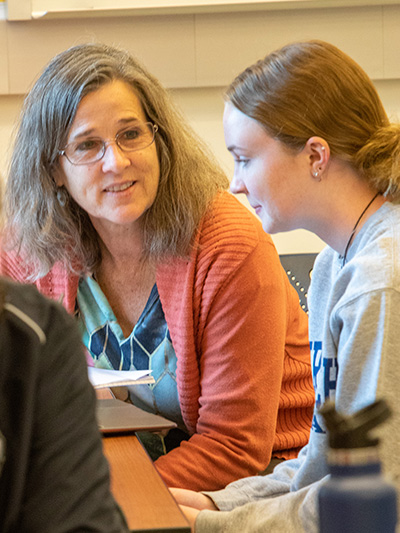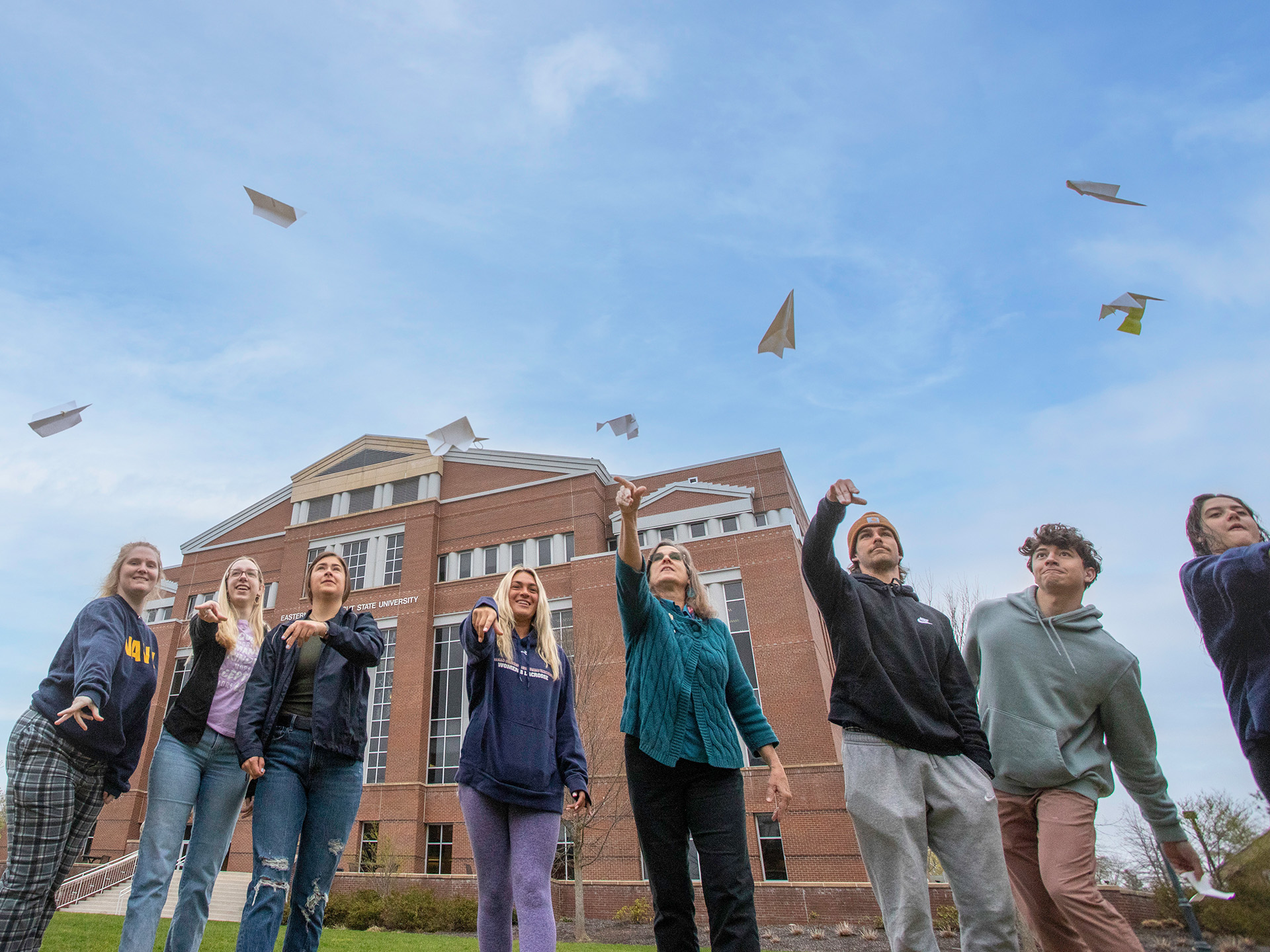- Apply
- Visit
- Request Info
- Give
Laura Rodriguez - Assistant Professor, Education
Ph.D., University of Connecticut Profile
Profile
Assistant Professor Laura Rodriguez teaches in Eastern’s Education Department, specializing in K-12 science education. After receiving her bachelor’s degree in biology from Boston University, she volunteered in the Peace Corps as a fisheries extensionist in Ecuador, South America. After returning to the United States, she earned her Master of Art in Teaching (M.A.T.) in science education from Wayne State University. Professor Rodriguez enjoyed 23 years of teaching in elementary, middle and high schools in South Carolina, Michigan, Ohio and Connecticut. She earned her Ph.D. in 2020. Her dissertation was on STEM (science, technology, engineering and math) identification in intergenerational informal science learning.
A focus on STEM
Professor Rodriguez focuses on the development and maintenance of STEM identity in formal and informal educational spaces. STEM identity has been defined as “a person’s perception of themselves as someone who understands, uses and can contribute to a STEM field.” At Eastern, she is the educational researcher for an NSF S-STEM grant which aims to support high achieving, low-income biology and math majors. She has also worked as a consultant analyzing qualitative data for an S-STEM grant at the University of St. Joseph.
Teaching philosophy and style
“I believe that learning is primarily a social activity. As we interact with other people or their constructions (e.g., writings, inventions, art, etc.), we are exposed to different viewpoints and understandings. We incorporate those select words and ideas that resonate with us and add them to our developing schema. We make them our own. They become part of who we are. Learning is about creating our identities and it is a lifelong process.
“Due to the social nature of learning, I believe that teaching must first and foremost focus on developing and nurturing relationships with and among students. Nurturing relationships is a combination of demonstrating care and respect for your students with explicit teaching of interactional norms and communicating high expectations. Teachers must first see the whole child and realize that they are geniuses about their lives. Their culture, language, and life experiences are resources to be used in the classroom — never deficits. Even initial — what have been termed — ‘misconceptions’ are resources for students to build upon. They should be respected as tools that have helped children to make sense of their world. By valuing students’ initial conceptions, teachers show they value students’ ideas and can then build upon them, refining those ideas to develop a deeper conceptual understanding. To refine those initial ideas, students must make their ideas public and learn how to engage in productive discourses that allow them to consider other’s ideas and viewpoints to further everyone’s understandings.
“My primary goal for students is to learn critical thinking skills which translate to all areas of their lives to help them make decisions and solve problems. This goal is the same for elementary students as for undergraduates. To reach this goal, students must learn how to determine what is relevant information; make connections between information from different disciplines; and apply that information to their lives. An equally important goal is for students to realize that learning never stops, it is a lifelong process. In the words of Albert Einstein, ‘Intellectual growth should commence at birth and cease only at death.’”
Nurturing relationships is a combination of demonstrating care and respect for your students with explicit teaching of interactional norms and communicating high expectations.

Supporting low-income students
Professor Rodriguez is a member of an interdisciplinary team with professors Barbara Murdoch, Elizabeth Cowles, Kim Ward and former Dean Cid Carmen that received an NSF S-STEM grant. “Beyond the Curriculum: A Learning Community for Success” is an innovative program which supports high-achieving low-income students in STEM by providing up to 4-year scholarships and aims to create a STEM learning community to increase student retention, graduation and entry into a STEM career.
International Engineering Education Experiences: Thailand and Japan
In 2019, while still a doctoral student, Rodriguez was selected to participate in a multidisciplinary advanced graduate institute, Pacific Rim Earthquake Engineering Mitigation Protective Technologies International Virtual Environment (PREEMPTIVE), in Thailand. There she worked with U.S. and Thai graduate engineering students to learn about seismic hazards, disaster preparation and response, and developed a grant proposal combining topics such as humanitarian engineering, citizen science and natural disaster preparedness. In the summer of 2023, she was invited back to be a faculty mentor for the PREEMPTIVE program in Japan.

